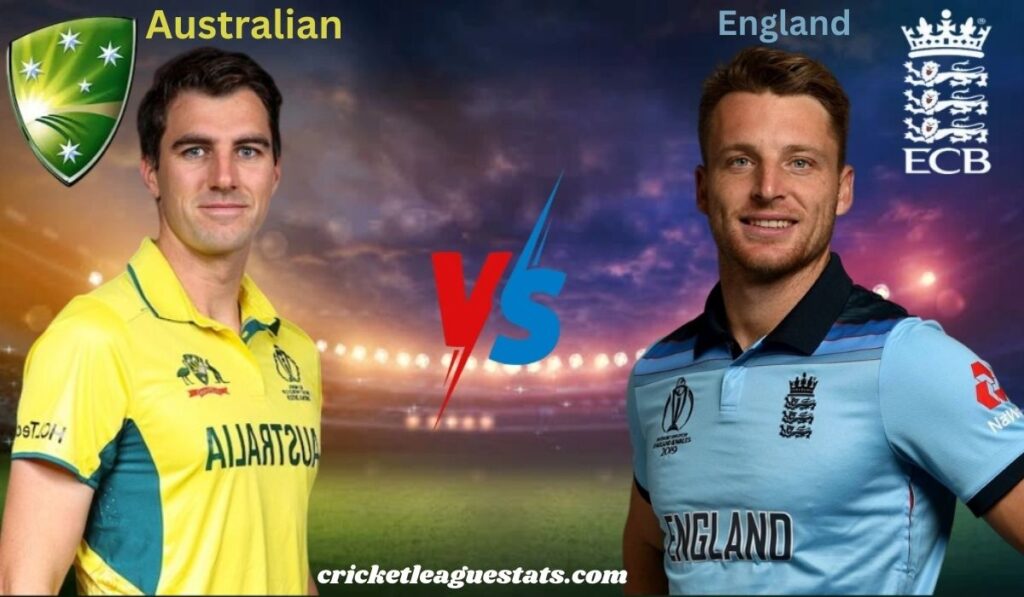There are few rivalries in the history of cricket as intense, passionate, and historical as the one between Australia and England that started in the first Test match ever played in 1877 and has since evolved into some fiery Ashes series in recent years that is intrinsic to the sport. The Australian Mens Cricket Team vs England cricket team teamline is ripe with memorable moments, great players, and fierce action on-field and off it. From Don Bradman’s mastery to Ben Stokes’ wizardry and the ever-evolving amount of discussions, each rivalry with the players who take part, crafts a new moment for this great rivalry. As generations have developed and changed, the incredible rivalry and competitive spirit has never waned, and thus, every series has an anticipation that is awaiting by cricket fans all around the world.
Australian Mens Cricket Team vs England Cricket Team Timeline
1876-1910: Tussle Begins
- 1876-1877 Australia vs England- On March 15, 1877, the inaugural test match was played at the Melbourne Cricket Ground in Melbourne. In the first test match between the two teams, Australia won by 45 runs thanks to 165 from Charles Bannerman. With the help of strong bowlers, England recovered to win the second game of the series, winning that test match by four wickets.
- 1888 England vs Australia- Australia lost to England 2-1 in the three-match test series. This series had some fantastic bowlers, but none were more impressive than John Briggs and Robert Peel, whose deft bowling and pitch manipulation terrified the hitters. England won the next two Test matches at the Oval and Old Trafford, leaving little opportunity for Australia, despite their victory in the first Test at Lord’s.
- 1899 England vs Australia- In the UK, there are five matches in the test series. Despite four matches ending in a draw, Australia won the series 1-0. Australia, under the leadership of Captain Joseph Darling, played tenaciously from the beginning of this series, but when one looks back on this kind of game, individual player performances usually become outstanding; two notable examples were Victor Trumper’s elegance in batting and Ernest Jones’ aggressive bowling. While Australia’s goal and discipline with their bowling and fielding may have calmed the series’ recurring and persistent losses, England’s inability to bat consistently was a serious worry.
- 1901-1902 Australia vs England – Australia dominated the five-match Test series, defeating England 4-1. Australia had a strong batting lineup thanks to Reginald Duff, who scored a century in the second Test and other noteworthy runs. Montague Noble bowled well for Australia, but England’s bat and ball skills were lacking once more.
1910s to 1950: The Era of Tough Challenges
- 1912 England vs Australia- Australia and England played low-scoring games in weather-affected conditions during the 1912 Triangular Series. England won one of the three games in the series, demonstrating their dominance. Jack Hobbs made crucial runs, and Sydney Barnes and Frank Woolley were excellent team bowlers. Australia was the struggling team, and this was evident throughout the series. Overall, England dominated the series and won the championship at home because they were the better team, as evidenced by their form and team consistency.
- 1932-1933 Australia vs England- The 5-match Test series concluded in favor of England. While Australia won the second match by 111 runs, England won the remaining 4 matches. This series further solidifies England’s position in Australia’s home ground.
- 1948 England vs Australia- Under Don Bradman’s leadership, Australia defeated England 4-0 in their 1948 series (one game was tied). Bradman won the first test of the series by eight wickets after scoring 138 runs in the first innings. Other well-known performers were Ray Lindwall and Arthur Morris.
- 1950-1951 Australia v England- The two sides played a 5-match Test series in Australia. The Kangaroos clinched the series 4-1. Australia’s fast bowlers and spinners were too much for England’s batsmen to handle. In the 3rd Test, Australia won the match by an innings and 13 runs, thanks to Keith Miller’s 145 not out. He also took 4 wickets in the first innings and John Iverson contributed with 6 wickets, conceding just 27 runs.
1951- 1975: Aussies Dominated the Field
- 1965-1966 Australia vs England- The Australian series ended in a 1-1 draw after five Test matches. Simpson’s batting and Graham McKenzie’s pace bowling helped Australia win the Fourth Test in Melbourne, while Bob Barber’s batting and David Brown’s bowling helped Mike Smith’s England win the Third Test in Sydney.
- 1970-1971 Australia v England- In the 1970s, Australia and England played their first One Day International in Melbourne. The Australian side won the first match by 5 wickets after England was allowed to bat first and set a target of 191 runs, which they were able to reach in 34.6 overs. Player of the Match went to John Edrich because of his outstanding batting.
- 1974-1975 Australia vs England- Australia defeated England 4-1 in six Test matches, putting up yet another impressive performance in the six-match series. Australia’s fast bowling combo of Jeff Thomson and Dennis Lillee, who were feared by all opposing hitters, thrashed England due to player injuries and poor form. Australia’s batting is led by Ian and Greg.
Read More: RR Vs MI Head to Head in IPL, Records, Stats & Results / Afghanistan National Cricket Team vs Australian Men’s Cricket Team Timeline
1976 to 1999: Battle of ODIs Begins

- 1977 England vs Australia – England won the three-match, one-day international series 2-1. England, who were consistent with the bat, won the first game, and then dominated Australia with the ball in the second. Dennis Amiss scored a century in the third game, but Australia won by a slim margin thanks to the heroics of Greg Chappell, who scored 125.
- 1979-1980 Australia vs England – In the three-match test series, Australia completely dominated England, winning 3–0. The “aluminum bat incident” featuring Dennis Lillee, who batted with a metal bat, is another well-known aspect of this test series. Regulations governing cricket bats were changed as a result of the occurrence. In the first test of the series, Allan Border scored a century, making him the fastest Australian to amass 1,000 Test runs. Greg Chappell demonstrated his capacity to remain resilient as a batsman by carrying his bat for 98 not out in the second Test for Australia. The Australian team won the third Test by eight wickets and ended the series with a resounding 3–0 victory.
- 1984-1985 Rothmans Four-Nations Cup – Australia defeated England by two wickets in a very close match at Sharjah during the Rothmans Four-Nations Cup in 1984–85. Tim Robinson scored the most runs for England with a high score of 37, and the team scored 177/8 during the game. The exceptional all-rounder Greg Matthews, who bowled 10 overs with a bowling stat of 1/15 and scored 24 runs, helped Australia knock down the goal with just one ball remaining. As a result of his significant all-around influence on the close game, Matthews was voted Player of the Match.
- 1987-1988 Reliance World Cup- Australia and England played each other in the 1987 Reliance World Cup at Eden Gardens. Australia prevailed by seven runs. David Boon, who won Player of the Match, made 75 runs as Australia reached 254. Despite Bill Athey scoring 58 and Allan Lamb adding 45, England struggled at the batting end and continued to lose wickets at critical times.
- 1998-1999 Australia vs England- Australia won the 1998-1999 series against England 3-1. Stuart MacGill of Australia was the ball’s star. England won the fourth test by 12 runs after Dean Headley took 6 wickets for 60 in Melbourne. With three hundreds, including crucial contributions from aggressive partnerships, Michael Slater was Australia’s standout opening batsman.
2000s-2010: The Prime of Aussies
- 2001 Natwest series- In Manchester, Australia crushed England by 125 runs in the 2001 Natwest series. England, who were chasing a revised total of 212, fell to 86 all out after Australia had reached 208/7 in 48 overs. In England’s pitiful total, Shane Warne claimed two wickets and Jason Gillespie claimed three. Australia’s depth and England’s continuous difficulties were demonstrated in this match.
- 2005 England v Australia- On June 13, 2005, England and Australia played their inaugural Twenty20 International. After winning the toss, England chose to bat and scored 179/8 after 20 overs. Marcus Trescothick (41) and Paul Collingwood (46) were England’s leading scorers. Australia lost by 100 runs following a terribly bad chase in which they were bowled out for just 79 runs after just 14.3 overs.
- 2006-2007 Australia v England- England lost the five-match test series to Australia 5–0. Throughout the series, Stuart Clark and Ricky Ponting were a nightmare for England. There were numerous outstanding individual performances during the series, including Matthew Hayden’s 153 and Andrew Symonds’ 156. Australia dominated the series and won the final Test match in Sydney by a margin of 10 wickets.
- 2007 ICC World Cup- In the 2007 ICC World Cup on April 8, Australia defeated England by 7 wickets. England batted first, scoring 247 all out in 49.5 overs, with Kevin Pietersen scoring an astonishing 104 runs. Australia scored 248/3 in 47.2 overs and won the game with ease. Ricky Ponting led Australia’s chase with 86 runs in 120 balls, while Michael Clarke assisted him with a solid 55 not out. Shaun Tait was awarded Player of the Match for taking three wickets.
- 2010 ICC World Twenty20- In the T20 World Cup final, England triumphed over Australia by seven wickets to claim their first ICC Trophy. England bowled splendidly; Graeme Swann and Ryan Sidebottom restricted the Australian innings to a respectable 147/6. England reached their target with 18 balls to spare, led by an explosive 63 from Craig Kieswetter and 47 from Kevin Pietersen. The winning runs were scored by Paul Collingwood, while Kieswetter was named Player of the Match.
2011-Present: England Restored Balance in Rivalry
- 2010-2011 Australia vs England- Each team won one of the two-match T20I series against Australia in England, finishing with a score of 1-0. In the first game at Adelaide, England made 159/9 from a target of 158 with a win by one wicket. Eoin Morgan made an important 43 runs, while Shane Watson led Australia with 59 runs and 2 wickets. In the second match in Melbourne, Mitchell Johnson had 3 wickets, and Aaron Finch made 53 runs enabling Australia to 147/7 and win by 4 runs.
- 2013 ICC Champions Trophy- England defeated Australia by a score of 48 runs at Birmingham. Ian Bell scored 91 runs in an innings as England amassed 269/6. Australia only managed to make 221/9 in the 50 overs of their reply, taking early wickets. James Faulkner kept the game alive with a late surge of 54 runs. The game’s high point was when Australia’s Clint McKay grabbed two wickets and James Anderson took three.
- 2021-2022 Australia vs England- In this Test match series in 2021–2022, Australia triumphed over England 4–0. The outlier was Travis Head who was awarded Player of the Series after an incredible 152 in the first Test half. Australia’s attack with Pat Cummins, Mitchell Starc, and Nathan Lyon had a fantastic series regularly decimating England’s batting line-up. Joe Root could do nothing to stop the pulverisation of England, even though he emerged as the series top run scorer.
- 2024 ICC T20 World Cup- Australia defeated England by 36 runs in the match held at Kensington Oval, Barbados during the T20I World Cup 2024. Mitchell Marsh (35 off 25 balls) and David Warner (39 off 16 balls) helped Australia score 201/7. England fell short on 165/6 despite good knocks from Phil Salt (37) and Jos Buttler (42). It was Adam Zampa who was instrumental in the victory with 2/28 and Pat Cummins with 2/23.
- 2024-2025 ICC Champions Trophy- Australia made history in this game by beating England after chasing down a whopping 352 runs with 15 balls to spare. Josh Inglis remained unbeaten at 120 off 86 balls (his first ODI century) as Australia chased the biggest total in Champions Trophy history. Inglis was the linchpin in the chase. Before that, Ben Duckett hit an incredible 165 runs to lift England to a monstrous 351/8.



